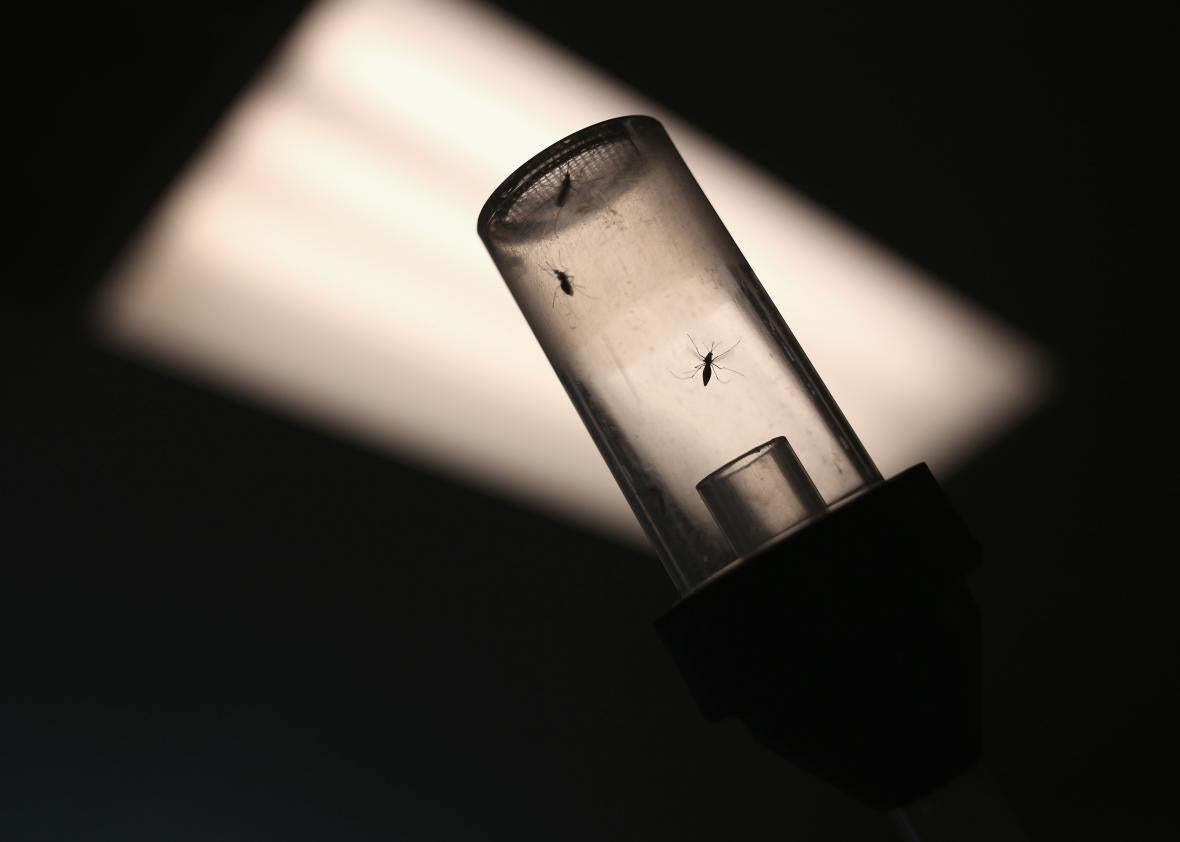The Zika virus can be detected in the semen of men who’ve been infected for more than twice as long as scientists previously thought. Two reports published Thursday in Eurosurvellance detail cases of men who showed Zika RNA in their semen 181 and 188 days, respectively, after the onset of their symptoms. Doctors had previously noted the presence of Zika in semen up to 93 days after men showed symptoms of infection.
Both men in Thursday’s reports traveled from their homes in Italy to visit Haiti in January of this year. The man whose semen showed Zika 188 days after symptom onset also had Zika RNA in his urine and saliva 91 days after symptom onset. There have been no documented cases of Zika transmission through saliva, but the report’s authors suggest that this case warrants further studies of that possibility.
The first known transmission of Zika through sexual contact occurred in Texas early this year. Back when the Centers for Disease Control and Prevention thought Zika could only present in semen up to two months after infection, the agency recommended that men who lived in or had traveled to a Zika-afflicted area and showed symptoms should abstain from unprotected sex for six months, just to be safe. It also suggested that men who didn’t show symptoms but had been to an area with active Zika transmission abstain for eight weeks, to balance the hardship of preventive measures with the lower probability that they’d contracted the virus.
But since Zika only causes symptoms in about 20 percent of infected people, the CDC has begun pushing more conservative testing recommendations for pregnant women. Now, the agency says that all U.S. pregnant women who’ve traveled to Zika transmission zones—including one square mile near downtown Miami—should get tested for Zika infection, even if they have no symptoms. Zika can cause miscarriages and birth defects, including the stunted head development of microcephaly, in fetuses carried by women infected with Zika. Earlier this week, a new study published in the BMJ (formerly the British Medical Journal) suggested that Zika might also be linked to arthrogryposis, the congenital condition Donald Trump mocked when he infamously imitated New York Times journalist Serge Kovaleski.
The new Italian reports on Zika in semen have not confirmed that the Zika RNA detected in semen at 181 or 188 days post–symptom onset can transmit a viral infection, just that it’s there. “If we find there’s a need to change current recommendations, we’ll do it as soon as we can,” John T. Brooks, the CDC’s senior medical adviser on HIV/AIDS, told the Huffington Post. Whether or not the agency’s abstinence recommendations shift, the latter report’s authors propose that sperm banks might want to start screening submissions.
